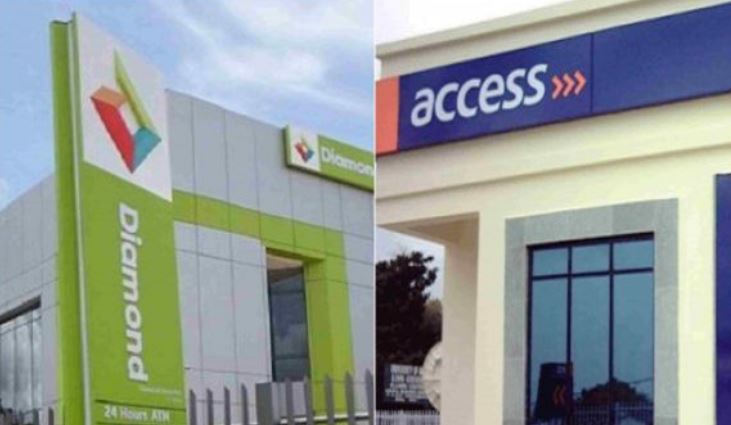Access Bank Plc has officially reacted to reports making the rounds in the media that its Managing Director/Chief Executive Officer, Herbert Wigwe and other top officials of the bank were slammed with a N2.5 billion suit bordering on stealing and others.
The 21-count charges were filed by the Lagos section of the Special Fraud Unit (SFU) of the Nigeria Police Force Justice N.I. Agbelu of the Ogun State High Court in Sagamu.
Mr Wigwe, Alawode Oluseye, Bayo Adesina, and Access Bank Plc were all accused of conspiring and stealing 23,754.413 metric tonnes of steel billets valued at N2.5 billion belonging to BMCE Bank International Plc.
The police claimed the defendants falsely presented themselves as the owners and sold the steel billets to Metal Africa Steel Products Limited without the authorisation of the actual owner.
The alleged crime was said to have taken place in June 2017 at the premises of Metal Africa Steel Products Limited along Sagamu/Ikorodu road, Ewe Jagun, in Ogun State.
In the suit, the police alleged that the defendants forged the Bill of Ladings number: MJINLOS150007’1A’; MJINLOS150007 ‘1B’; MJINLOS150007 ‘1C’; MJINLOS150007 ‘2A’; MJINLOS150007’2B’; MJINLOS150007 ‘2C’; MJINLOS150007 ‘2C’; MJINLOS150007 ‘2D’; MJINLOS150007 ‘2E’; MJINLOS150007 ‘2F’; MJINLOS150007 ‘2G’; MJINLOS150007 ‘2H’; MJINLOS150007 ‘2I’; MJINLOS150007 ‘2J’; MJINLOS150007 ‘2k’; MJINLOS150007’2L’ and MJINLOS150007’2M’, which they claimed were issued on January 9, 2016.
The offences according to the police are contrary to and punishable under Sections 518(6), 434, 383(1)(f) and 390(9), 516 and 464 and 467 of the criminal Code of Ogun State of Nigeria, 2006.
The offences also contravened Section 1(1)(a) and 1(3) of the Advance Fee Fraud and other related offences Act No. 14 of 2006.
“That you Herbert Wigwe ‘M’, Alawode Oluseye ‘M’, Bayo Adesina ‘M’ and Access Bank Plc, on 22 day of June, 2017, at the premises at Met Africa Steel Products Limited, Km 16, Ikorodu-Sagamu Road, Ewe Jagun, Ogun State within the jurisdiction of this honourable court, conspired among yourselves to effect unlawful purpose to wit: the unlawful and unauthorised sale of 754.413 metric tonnes of steel billets, property of BMCE Bank International Plc without its permission or consent,” one of the charges read.
However, in a swift response to the allegations, Access Bank, in a notice to the Nigerian Stock Exchange (NSE) on Monday, explained that in 2015, it provided credit facilities to Metal Africa Steel Products Limited, which it referred to as its customer, to finance the importation of billets and machinery for the expansion of its (customer) factory.
According to the statement, “Consequent upon the grant of the facilities, the bank opened Form M and Letters of Credit (LC) to facilitate the importation of the billets for which the shipping documents were consigned to the bank. The facilities were secured by a Debenture Trust Deed over the customer’s assets shared with other lenders.
“Upon arrival of the billets, the bank released the shipping documents to the customer to enable it clear the goods. The bank subsequently discovered that the customer had cleared the goods from the port without payment of appropriate customs duty.
“The bank, in line with its duty to protect its depositors’ funds, reported the alleged crime to SFU which obtained a court order to take over the customer’s business operations. Furthermore, the bank petitioned Interpol, which is presently taking steps to repatriate the suspects involved in the alleged fraud from India. Subsequently, the beneficiary banks (including the bank) under the Debenture Trust Deed, appointed a Receiver/Manager who took over the operations of the customer’s business and paid the appropriate customs duty on the billets.
“The Receiver/Manager subsequently obtained court order from the Federal High Court and sold the billets and distributed the proceeds amongst the beneficiary banks (including the bank).”
Access Bank further said in the statement that it was “aware that the petitioner also laid claims to the same billets following which there were attempts at settlement between the petitioner and the Receiver/Manager. The petitioner subsequently filed a complaint at SFU following the failure of settlement.
“Based on the foregoing, we were surprised to be served with the charges by the SFU alleging, amongst others, that the bank stole the billets and forged the shipping documents covering the billets.
“We hereby state that at no time did the bank or any of its executives or officers commit any of the alleged offences. The bank has continued to maintain the position that it financed the importation of the billets and that the Receiver/Manager appointed by the bank and a syndicate of other lenders had the right to sell the goods. We are aware that there are civil matters in court on the same subject.
“We are also aware that there are on-going settlement negotiations between the Receiver/Manager and the petitioner. Without prejudice to the settlement discussions and the civil matter, we reiterate that the Receiver/Manager appointed by the bank and a syndicate of other lenders acted within its powers to sell the billets.
“We wish to assure our stakeholders that the bank will continue to take all necessary steps to protect its depositor’s funds in line with its fiduciary duties as well as extant rules and regulations.”

